Foreign Researchers Share Their Love for Xinjiang
2025-09-24
Located in the northwest of China, the Xinjiang Uygur Autonomous Region captivates many foreign friends with its vast and magnificent natural scenery, the harmonious integration of multi-ethnic cultures, its convenient transportation and trade networks, and its unique scientific research value. Recently, News Radio of China Media Group (CMG) interviewed several foreign researchers at the Xinjiang Institute of Ecology and Geography of the Chinese Academy of Sciences, who shared their love for Xinjiang.
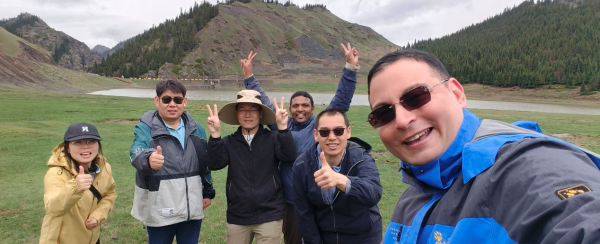
Berdyyev Arslan, 39 year old from Turkmenistan, is currently a Ph.D. candidate at the University of Chinese Academy of Science (UCAS). He uses remote sensing and geographical information systems to study physical geography, particularly in this fascinating region.
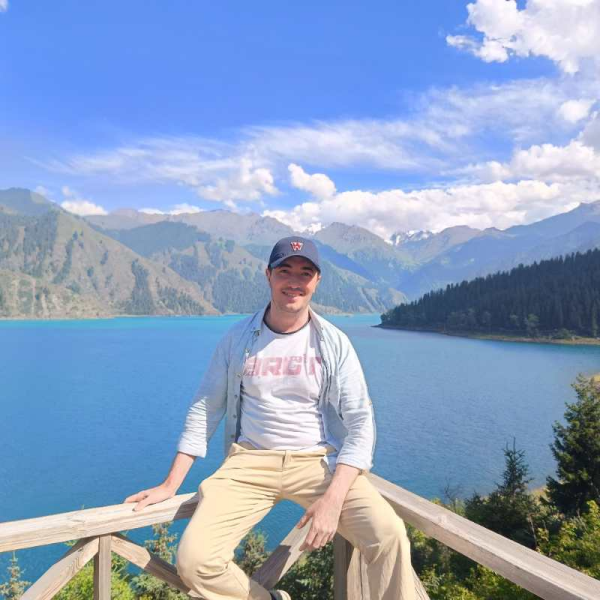
Berdyyev Arslan: What truly amazed me was the rapid pace of development. For instance, shortly after my arrival, a new international airport terminal opened—a modern, automated, and impeccably clean facility. Similarly, the public transportation system, particularly the metro, is incredibly well-designed, showcasing the city's commitment to progress.
"Xinjiang has diverse landscapes, numerous ethnic groups and cultures, which attract people from neighboring countries," Arslan said.

Berdyyev Arslan: Xinjiang's natural diversity is a major draw for me. It is a vast region with landscapes ranging from deserts to lush forests and from low-lying fields to towering mountains. It is a place where you can experience all four seasons, even with its arid climate. This region's multiculturalism is another aspect I deeply appreciate.

Berdyyev Arslan: Xinjiang has proven to be an incredible place to live and work. The kind people and the professional opportunities at the Institute have inspired me to continue my work. In just my first year, I was able to publish my initial articles in international journals, which has been incredibly motivating. Upon successfully completing my degree, I hope to continue my career in science and build upon the foundation I've established here.
Zeeshan Ahmed is a 40-year-old professional from Pakistan. For the past 6 year in Xinjiang, he has been engaged in developing and implementing desertification control strategies. "Xinjiang plays a critical role in addressing desertification and land degradation," he said.
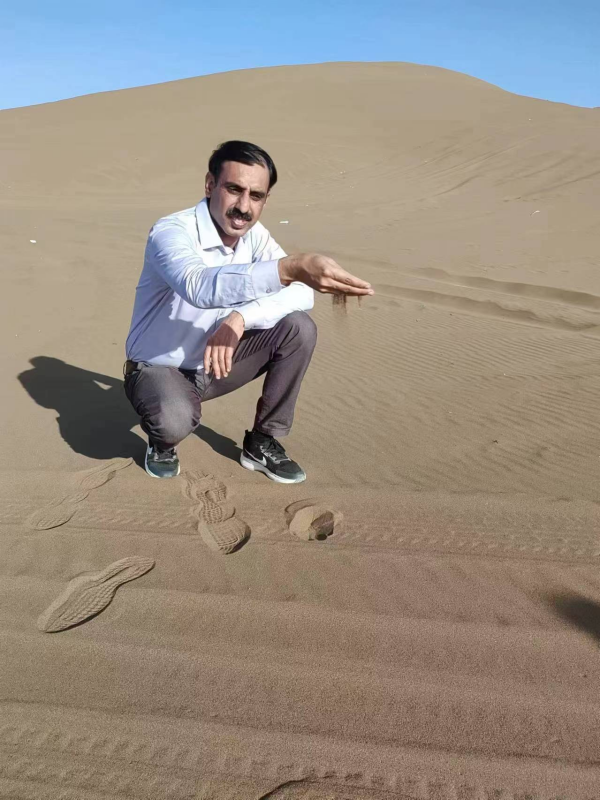
Zeeshan Ahmed: I was quite inspired by its culture and beauty, profound environmental challenges, and the ongoing efforts to preserve its fragile ecosystems. Xinjiang offers state-of-the-art research facilities that will enable me to implement cutting-edge solutions. Moreover, friendliness of the people and the cultural familiarity make me feel at home.
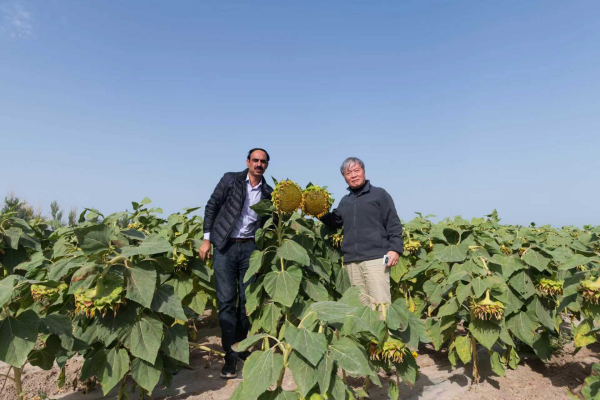
Zeeshan Ahmed: Xinjiang's cuisine is a big draw for me; the rich flavors, with a mix of spices and herbs from various ethnic groups, make dining an exciting experience. I also value the region's multi-ethnic lifestyle.
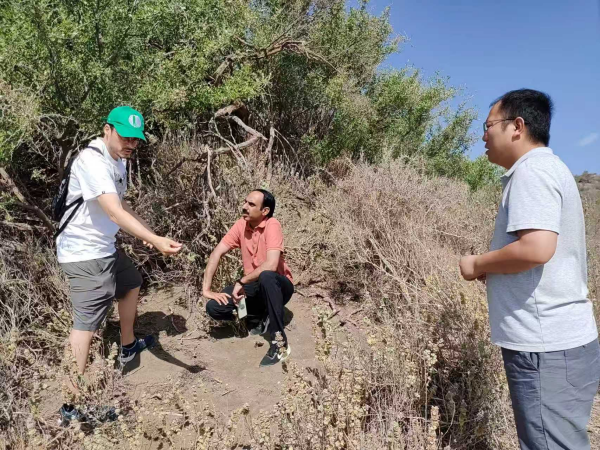
Zeeshan Ahmed plans to stay and work in Xinjiang, further advancing desertification control and contributing to sustainable land management in Xinjiang. His long-term objective is to establish a robust network of scientific collaboration among China’s neighboring countries, facilitating the exchange of innovative ideas and best practices for desertification control.
One standout moment for Zeeshan Ahmed was collaborating with local communities in the Taklamakan Desert, where traditional knowledge of sustainable farming was integrated with modern techniques for desertification control. Attending a cultural festival in Kashi highlighted the region's ethnic diversity, reminding him of the importance of combining environmental conservation with local traditions.
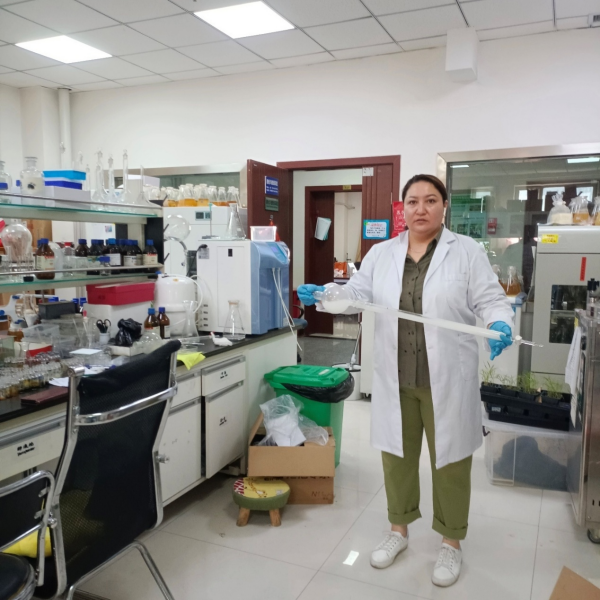
Nigora Kuchkarova Nurdullaevn, 41-year-old, is an Agrochemist from Uzbekistan. She came to Urumqi in January 2017 to the State Key Laboratory of Desert and Oasis Ecology, Xinjiang Institute of Ecology and Geography. “The institute's advanced laboratory infrastructure and extensive research resources provide an ideal environment for conducting high-quality experimentation,” she said.
Kuchkarova: Xinjiang is a beautiful place. China and Uzbekistan maintain a robust bilateral relationship,which is continuously strengthening through increased cooperation. I am very glad to be able to participate in the collaboration between the two countries.
Osama Mohamed, a 45-year-old environmental microbiologist from Egypt and recipient of the Chinese Government Friendship Award and the Tian Shan Award.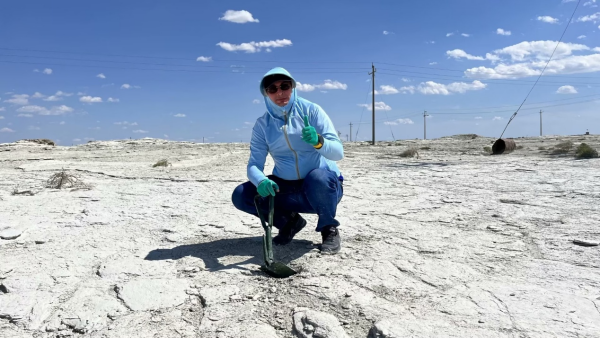
Osama Mohamed: I first arrived in Xinjiang in 2014 and was stunned by its unique geography. My strongest first impression was the people. I was immediately struck by the warmth and hospitality of the local people. All ethnic groups in Xinjiang live in harmony and strive together for the country and the development of Xinjiang.
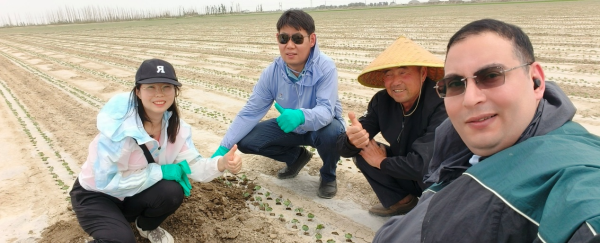
"I feel a responsibility to strengthen the scientific and cultural bonds between China and Egypt, and the wider Belt and Road Initiative nations," said Osama Mohamed. To show his affection for China, Osama chose the Chinese name "Jinshan", a name thoughtfully derived from both the pyramids of Egypt and China's Tianshan Mountains.
Osama Mohamed: I fell in love with the culture, the Xinjiang land, the climate, and the food! I want to bring more young international scientists to Xinjiang to see its potential for themselves and to continue building a global scientific family right here in this beautiful, dynamic region.
Source: https://news.cri.cn/20250923/dc2431c8-d93d-774a-64f9-c73cfd5127b4.html
Contact
LONG Huaping
Xinjiang Institute of Ecology and Geography
E-mail: longhp@ms.xjb.ac.cn
Web: http://english.egi.cas.cn



